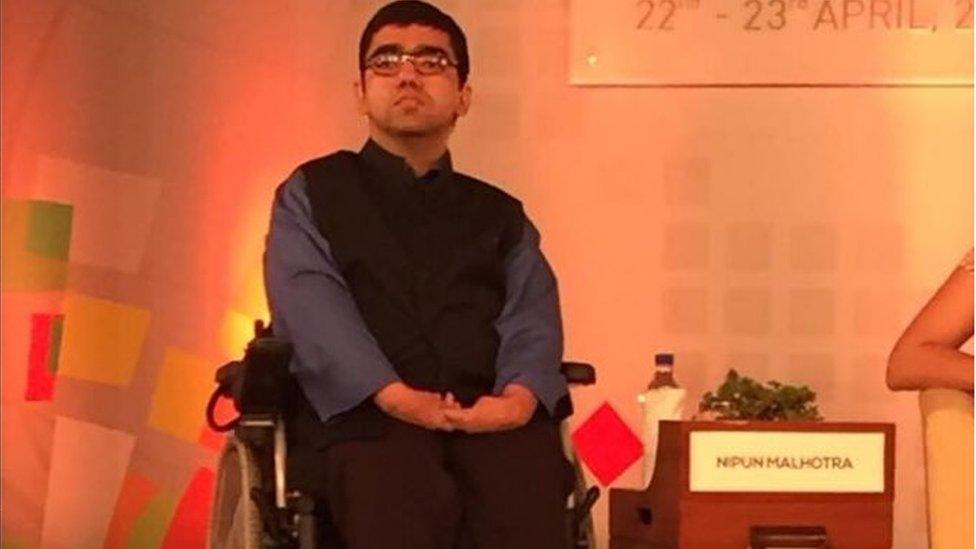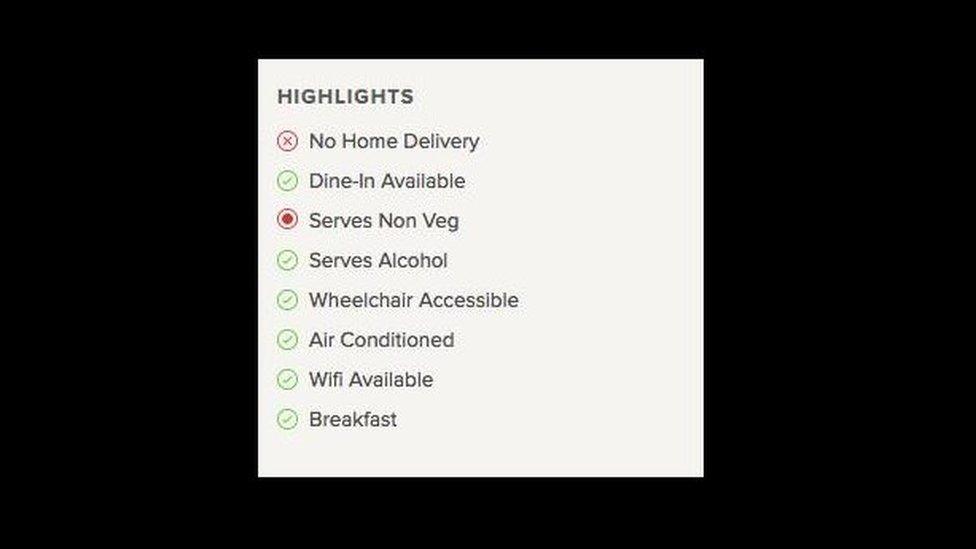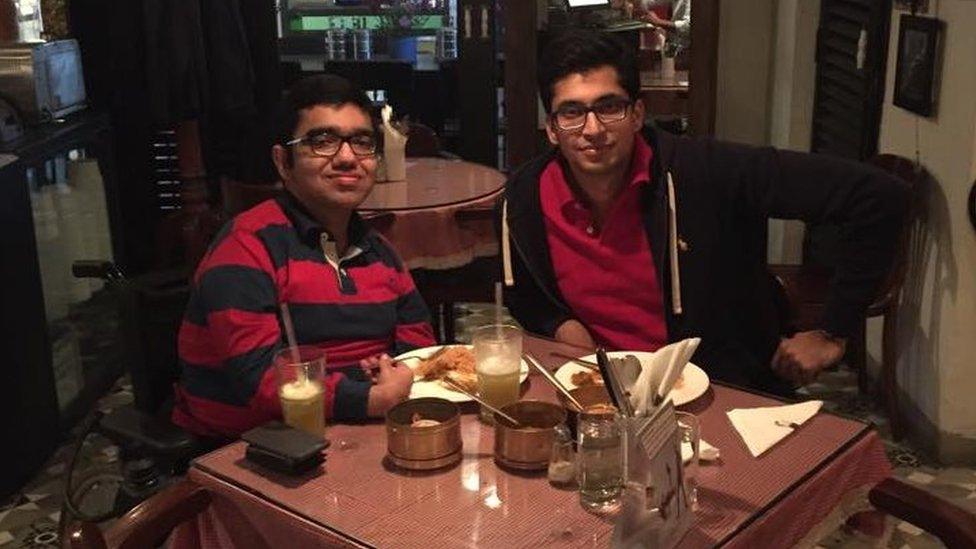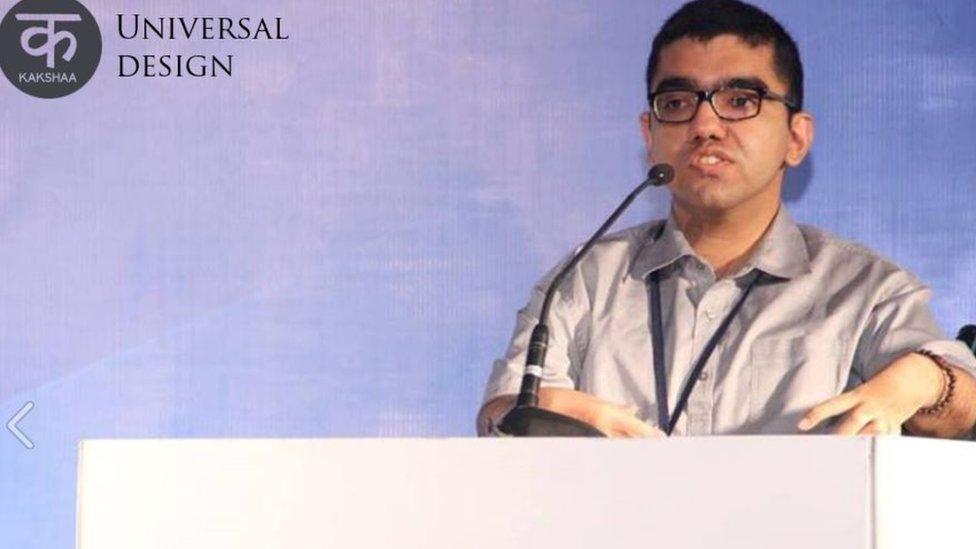Making restaurant visits 'a pleasure' for India's disabled
- Published

Nipun Malhotra wants more Indian cities to become disabled friendly
"Picking a good restaurant to eat sounds like a simple question for many, but if you are a disabled person in India, it's a big deal," says Nipun Malhotra.
This thought made the disability rights activist request a popular food app to list wheelchair-friendly restaurants in six India cities.
Zomato responded to Mr Malhotra, external quickly and started listing disabled-friendly restaurants in August.
Mr Malhotra told the BBC he was amazed when he travelled to the US in July and found that "it was so easy to search disabled-friendly restaurants on food apps".
"It was a struggle to find disabled-friendly restaurants in Delhi and other Indian cities before Zomato agreed to my request. Not many places advertised themselves as disabled friendly and that was disheartening," he said.
Most disabled people in India "do not visit restaurants very often and that severely restricts their social life", he added.
"We can't go to public parks to play sports because they lack proper facilities. So restaurants become very important for our social life, but then not many know how to find restaurants which welcome the disabled," he said.
Mr Malhotra wanted to change this, but did not know what to do.
"It was frustrating, very frustrating. But thankfully my visit to the US gave me this idea that food apps can help in solving this problem."
He said officials at Zomato were helpful and they finally added "wheelchair accessible" filter in August.

Zomato allows its users to find "wheelchair accessible" restaurants
Three months later, the activist said he was happy with the progress but felt more efforts were needed.
India is not known for being friendly towards the disabled and most public places still lack basic facilities to help them in everyday life.
And restaurants are no different.
Staff at most restaurants "do not know how to serve a person with disability", he said.
"In most places, staff either show pity or simply don't know how to respond to my requests."

Mr Malhotra says "he likes to go out with friends"
The activist wants to change this attitude with a new campaign.
He has requested the National Restaurant Association of India, external to design a course to train staff on disability rights.
"I have noticed that some staff are reluctant to serve drinks to me. Once they do, they find it difficult to understand why I need a straw with my drink," he added.
And "they always give the bill to my able-bodied friends".
Mr Malhotra says the situation is much worse in smaller towns and that now he plans "to push food apps to add a similar filter for restaurants in smaller towns and cities".

Nipun Malhotra runs Nipman Foundation to campaign for disability rights in India
He also wants food app services to start posting their menus in computer readable formats.
"Visually impaired struggle to read menus which are usually posted as images on these food apps. If the menus are in computer readable formats then it will make it easy for visually impaired people to order food," he added.
The activist said he didn't want "any special attention for the disabled through his campaigns".
"I just want Indians to understand that we are as normal as anybody else. Some of us walk on the wheelchair instead of walking on our feet. That's it," he said.